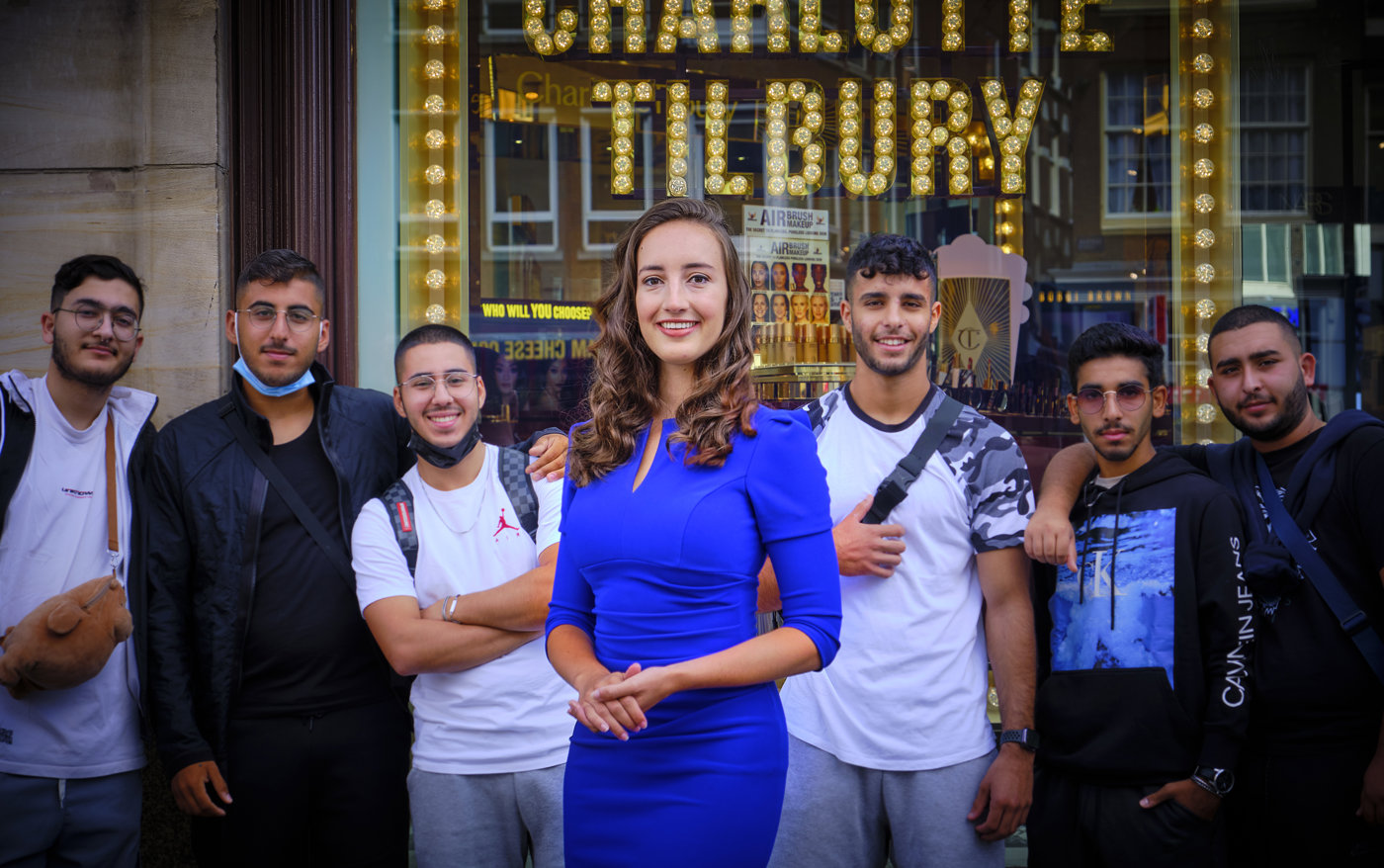But he did not kill, because between dream and act
there are hindering laws and practical objections
(from: Willem Elsschot, The Marriage)
Retirement may be the last thing Generation Z is thinking about, but they are the generation of the future. What do they dream about? What are they doing to achieve it? And what stands in their way? In this series we let young people talk about what the present and the future look like to them.
Laura Bas (24) from Amsterdam: “I worry about the waiting lists for mental health services. People who need help - and there are more and more since the pandemic - now have nowhere to turn.”
Who: Laura Bas (24). She recently finished third at Miss World Netherlands and will be starting the Culture Organization & Management master’s program at the Vrije Universiteit in Amsterdam in September. Previously she had studied law at a university of applied sciences. In addition, she is ambassador of the project "Because I deserve it", where she, MEPs Agnes Jongerius and Vera Tax, facilitate workshops on the wage gap for (young) women. “In the Netherlands, men still earn on average 15 percent more per hour than women. It is my mission to change that and I want to continue to work for that.”
Lives in: In a studio apartment (24m2, paying 320 euros) in a social project in Amsterdam. “Half of the residents have permanent residency cards and the idea is for us to mingle. It’s a great place to live, and it’s less than ten minutes from the university.”
Works at: Freelance in contract law and as a final editor at the Amsterdam Student Union.
Enjoys: Writing, history, philosophy, psychology and “pretty much anything that ends in ‘y’, except for biology.”
What do you dream about?
“That as a management consultant I can storm boardrooms in the business world, preferably internationally. I would like to see women being much better represented in the labor market five years from now than they are today. I want to deal with issues surrounding themes like diversity and inclusiveness. I see it as one of the tasks of my generation to bring organizations up to date by tackling outdated processes. Take pronouns alone. At the Amsterdam student union that I work for, a number of people are non-binary. They want to be addressed as ‘them’ instead of ‘he’ or ‘she’. These are changes that our generation needs to start making, including in the business world.”
And what do you still hope to accomplish in your private life?
“I hope to see a lot more of the world. As a naive 17-year-old, I lived in Brazil for a ‘gap year’ and I learned a lot from that. In a country like that, you constantly have to put your own values and standards on the scale in order to be grounded there. It has broadened my view of the world, and since then I have been much less quick to judge. It also made me realize how good we have it in the Netherlands. I still go back to Brazil every two years to visit my friends and the family I lived with. It is very interesting to hear their views on certain subjects. Getting to know other cultures is one of the most inspiring things in life as far as I’m concerned. I don’t have flight shame yet, but I really hope that the experts in that field will be able to develop a sustainable way to travel responsibly.”
